Lifelong Learners Earn Doctorates
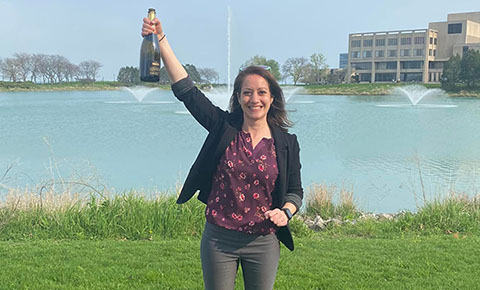
Nine Northwestern University graduate students recently reached the pinnacle of education, earning doctoral degrees in three of the School of Education and Social Policy's pioneering programs: Learning Sciences, Human Development and Social Policy, and Computer Science and Learning Sciences (CS + LS), a joint degree with the McCormick School of Engineering.
The newest doctors include Jamie (Gorson) Benario, the second student in School history to earn the joint CS + LS degree; learning scientists Mari Altshuler, Gabriella Anton, David Bar-El and Chris Leatherwood; and Naomi Blaushild, Meghan Leggero, Jacquelyn Stephens, and Cora Wigger of the Human Development and Social Policy Program.
Earlier in the 2021-22 academic year, 16 others received doctorates. They include Andrea Kinghorn Busby, Olivia Healy, Courtenay Kessler, Heather McCambly, and Lynn Meissner in Human Development and Social Policy; Allena Berry, Spencer Carlson, Sugat Dabholkar, Ruben Echevarria, Ava Jackson, Kit Martin, Abigail Stein, Julissa Muñiz, Jue Wu, and Yanning Yu in Learning Sciences. Connor Bain earned the School’s first CS +LS degree, a program co-founded by SESP professors Uri Wilensky and Michael Horn.
Learn more about our newest PhD’s:
Dr. Mari Altshuler, Learning Sciences
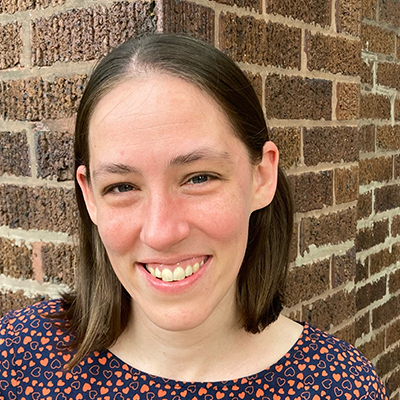 Altshuler studies how early elementary school students form relationships with mathematics. Her research supports young children (and their teachers!) in believing that they are capable math learners and thinkers. Her dissertation highlights the importance of making space in math classrooms for students to exercise agency. She is a member of Miriam Sherin's Freezing Time Lab, working with teachers to notice and explore students' complex mathematical ideas, and is on the Multiplicity Lab team, led by Jen Munson. Prior to coming to Northwestern, Altshuler taught K-3 in Chicago and Houston Public Schools. This summer, she and her family are moving to Urbana, Illinois, where she will join the University of Illinois College of Education faculty as a Teaching Assistant Professor in Curriculum & Instruction.
Altshuler studies how early elementary school students form relationships with mathematics. Her research supports young children (and their teachers!) in believing that they are capable math learners and thinkers. Her dissertation highlights the importance of making space in math classrooms for students to exercise agency. She is a member of Miriam Sherin's Freezing Time Lab, working with teachers to notice and explore students' complex mathematical ideas, and is on the Multiplicity Lab team, led by Jen Munson. Prior to coming to Northwestern, Altshuler taught K-3 in Chicago and Houston Public Schools. This summer, she and her family are moving to Urbana, Illinois, where she will join the University of Illinois College of Education faculty as a Teaching Assistant Professor in Curriculum & Instruction.
Dissertation: "'I think it's fun, and sort of challenging, but this is just me–I like challenges:' Exploring Early Elementary School Students' Emerging Mathematics Identities"
Advisor: Dr. Miriam Sherin
Committee: Jen Munson, Paula Hooper
Dr. Gabriella Anton, Learning Sciences
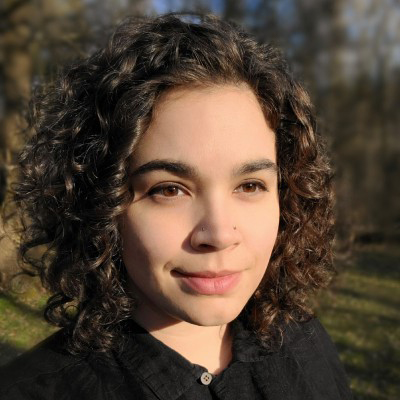 A learning scientist, designer and maker, Anton studies computational art, physical computing for youth, and developing identity in computer science. Her dissertation explored how computation has significantly impacted the art process. “Computation has dramatically changed how and what artists can create,” she said. “These changes have implications for computing fields as well as art.” Anton is a postdoctoral fellow at Vanderbilt University.
A learning scientist, designer and maker, Anton studies computational art, physical computing for youth, and developing identity in computer science. Her dissertation explored how computation has significantly impacted the art process. “Computation has dramatically changed how and what artists can create,” she said. “These changes have implications for computing fields as well as art.” Anton is a postdoctoral fellow at Vanderbilt University.
Dissertation: "Computational Practice and Perspectives in the Arts”
Advisor: Uri Wilensky
Dr. David Bar-El, Learning Sciences
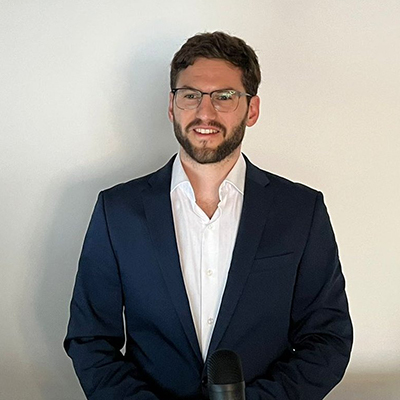 Bar-El examined the phenomenon of teaching with video games by looking at educators who use Minecraft Education Edition, a popular digital sandbox game. His work offers practical implications for teachers, policymakers, and game publishers interested in promoting the integration of digital games into classrooms. He has also researched making and tinkering. In 2021, he and Marcelo Worsley published a paper looking at Northwestern’s Inclusive Making course, which takes a critical look at the field of ‘making” and includes partnerships between students and people with disabilities can promote accessibility in computing. A native of Tel-aviv, Israel, Bar-El moved to the US in 2016 for graduate school.
Bar-El examined the phenomenon of teaching with video games by looking at educators who use Minecraft Education Edition, a popular digital sandbox game. His work offers practical implications for teachers, policymakers, and game publishers interested in promoting the integration of digital games into classrooms. He has also researched making and tinkering. In 2021, he and Marcelo Worsley published a paper looking at Northwestern’s Inclusive Making course, which takes a critical look at the field of ‘making” and includes partnerships between students and people with disabilities can promote accessibility in computing. A native of Tel-aviv, Israel, Bar-El moved to the US in 2016 for graduate school.
Dissertation: “Teaching with a Digital Sandbox Game: Teachers’ Experiences with Minecraft Education Edition”
Advisor: Marcelo Worsley
Dr. Naomi Blaushild, Human Development and Social Policy
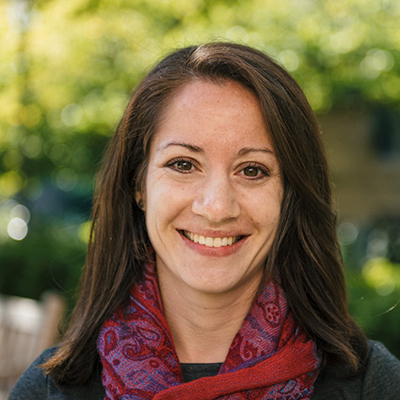 Blaushild, who will be working as a postdoctoral research fellow at the Learning Partnership in Chicago, studies teachers’ practice, teacher retention, school leadership, and education policy implementation. As part of her doctoral experience, she worked on a comparative school systems study led by Jim Spillane, Don Peurach, and David Cohen, and a research practicum with Evanston Township High School as part of the Multidisciplinary Program in Education Sciences program. Prior to coming to Northwestern, she taught fourth to sixth grade English Language Arts in Baltimore for six years and also facilitated professional development for elementary/middle school English Language Arts teachers. Her dissertation focused on the relationship between teachers’ proximity to home and retention, how initially short-term teachers develop a career commitment to teaching, and how school leaders approach challenges related to teacher retention.
Blaushild, who will be working as a postdoctoral research fellow at the Learning Partnership in Chicago, studies teachers’ practice, teacher retention, school leadership, and education policy implementation. As part of her doctoral experience, she worked on a comparative school systems study led by Jim Spillane, Don Peurach, and David Cohen, and a research practicum with Evanston Township High School as part of the Multidisciplinary Program in Education Sciences program. Prior to coming to Northwestern, she taught fourth to sixth grade English Language Arts in Baltimore for six years and also facilitated professional development for elementary/middle school English Language Arts teachers. Her dissertation focused on the relationship between teachers’ proximity to home and retention, how initially short-term teachers develop a career commitment to teaching, and how school leaders approach challenges related to teacher retention.
Dissertation: “I want to be part of that solution”: Investigating the dynamics of teacher commitment in U.S. public schools.”
Advisor: Jim Spillane and Simone Ispa-Landa
Committee members: Kirabo Jackson
Dr. Jamie (Gorson) Benario, Computer Science + Learning Sciences
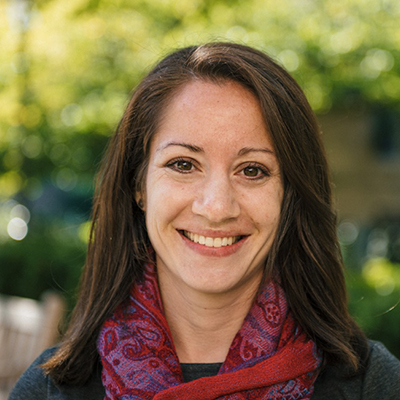 Benario, the second student in history to earn a joint doctorate in computer science and learning sciences, will be a user experience researcher in engineering education at Google, applying her research insights into their products and programs. Benario studies motivation, mindsets, and emotions in learning environments. Her work helps pinpoint the moments during programming where beginning computer science students feel like they are performing poorly. Already, her research has helped computer science instructors, education researchers and designers build technology to increase student engagement and motivation. Benario received her bachelor’s in electrical and computer engineering with a concentration on innovative education from the Olin College of Engineering. Her research is funded by the National Science Foundation Graduate Research Fellowship Program in the field of STEM Ed and a National Science Foundation CRII grant.
Benario, the second student in history to earn a joint doctorate in computer science and learning sciences, will be a user experience researcher in engineering education at Google, applying her research insights into their products and programs. Benario studies motivation, mindsets, and emotions in learning environments. Her work helps pinpoint the moments during programming where beginning computer science students feel like they are performing poorly. Already, her research has helped computer science instructors, education researchers and designers build technology to increase student engagement and motivation. Benario received her bachelor’s in electrical and computer engineering with a concentration on innovative education from the Olin College of Engineering. Her research is funded by the National Science Foundation Graduate Research Fellowship Program in the field of STEM Ed and a National Science Foundation CRII grant.
Dissertation: “Investigating student self-perceptions during the programming process”
Advisor: Eleanor O’Rourke
Committee Members: Michael Horn, Marcelo Worsley, Mark Guzdial
Dr. Meghan Leggero, Human Development and Social Policy
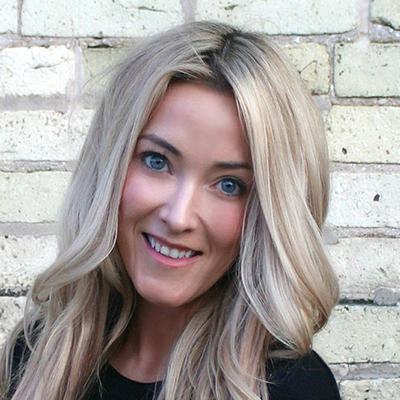 Leggero's research interests include education policy, marginalized youth, school discipline, policy, and practice. Her dissertation examined the role of youth online behavior in school discipline decision-making process. Her work is some of the first looking at how data from digital student ecosystems are mined and processed by school authorities. Leggero worked for over a decade as a teacher at Harper High School on Chicago’s South Side. She also served as a lead in a federal grant program through the Obama Administration which targeted improving education access, opportunity, and outcomes for marginalized youth in the Chicagoland area. “I was inspired to pursue my doctorate in policy and human development after seeing the impact of various policy fronts on young people in the community,” she said.
Leggero's research interests include education policy, marginalized youth, school discipline, policy, and practice. Her dissertation examined the role of youth online behavior in school discipline decision-making process. Her work is some of the first looking at how data from digital student ecosystems are mined and processed by school authorities. Leggero worked for over a decade as a teacher at Harper High School on Chicago’s South Side. She also served as a lead in a federal grant program through the Obama Administration which targeted improving education access, opportunity, and outcomes for marginalized youth in the Chicagoland area. “I was inspired to pursue my doctorate in policy and human development after seeing the impact of various policy fronts on young people in the community,” she said.
Dissertation: “Digital Discipline: Online Behavior and School Expulsions”
Advisor: Dan Lewis
Committee members: James Spillane and Gary Fine
Dr. Jacquelyn Stephens, Human Development and Social Policy
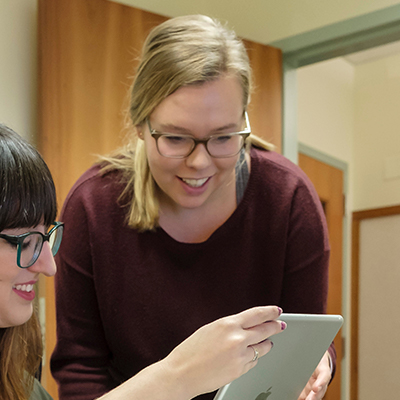 Stephens begins a postdoctoral research position with Dr. Judy Moskowitz in the Medical Social Sciences department of the Feinberg School of Medicine in June. Her research examines how emotional processes change across the lifespan, highlighting the consequences for health, well-being, and relationship functioning. She specifically investigates how stress and negative emotions get “under the skin” to influence health, and how positive emotions might buffer this process. Her dissertation investigated whether experiencing complex emotions is helpful or harmful, examining life stage and context as modifiers of these relationships. A fellow in the Society, Biology, and Health (SBH) and DevSci clusters, she was also a research assistant for the Lifespan Development Lab and COAST lab.
Stephens begins a postdoctoral research position with Dr. Judy Moskowitz in the Medical Social Sciences department of the Feinberg School of Medicine in June. Her research examines how emotional processes change across the lifespan, highlighting the consequences for health, well-being, and relationship functioning. She specifically investigates how stress and negative emotions get “under the skin” to influence health, and how positive emotions might buffer this process. Her dissertation investigated whether experiencing complex emotions is helpful or harmful, examining life stage and context as modifiers of these relationships. A fellow in the Society, Biology, and Health (SBH) and DevSci clusters, she was also a research assistant for the Lifespan Development Lab and COAST lab.
Dissertation: “All Mixed Up: Correlates of Emotional Complexity Across the Lifespan"
Chair: Claudia Haase
Committee members: Emma Adam and Yang Qu
Dr. Addie Shrodes, Learning Sciences
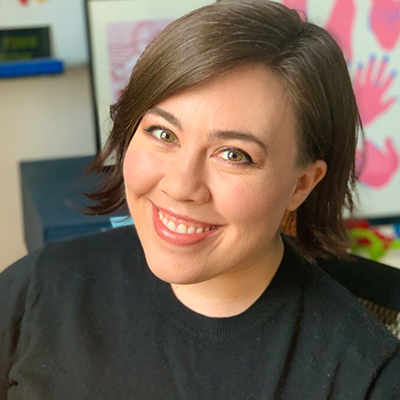 Shrodes has joined the University of Colorado Boulder as a postdoctoral research associate working with Arturo Cortez and Tiera Tanksley through the Learning to Transform (LiTT) Video Gaming Lab. Shrodes' dissertation examined how 21 trans and queer teens learned to negotiate social injustice through participation on social media platforms, such as Tik Tok, Twitter and YouTube. By drawing on sociocultural, queer, and critical disability frameworks, she expanded the study of critical digital literacies from a focus on youth resistance to include “complementary practices of humor, hope, and joy that sustain members of marginalized communities in struggle and open other possibilities for social and political life,” she said. "These practices of livability arise out of necessity yet offer windows into possible elsewheres, or expansive ways of being and organizing life." Shrodes received a highly competitive American Dissertation Fellowship from the American Association of University Women (AAUW) to support her research. In 2021, Shrodes was selected to participate in the fifth-annual Curriculum Inquiry Writing Fellowship, where she developed a chapter of her dissertation that is under review as an article with the journal.
Shrodes has joined the University of Colorado Boulder as a postdoctoral research associate working with Arturo Cortez and Tiera Tanksley through the Learning to Transform (LiTT) Video Gaming Lab. Shrodes' dissertation examined how 21 trans and queer teens learned to negotiate social injustice through participation on social media platforms, such as Tik Tok, Twitter and YouTube. By drawing on sociocultural, queer, and critical disability frameworks, she expanded the study of critical digital literacies from a focus on youth resistance to include “complementary practices of humor, hope, and joy that sustain members of marginalized communities in struggle and open other possibilities for social and political life,” she said. "These practices of livability arise out of necessity yet offer windows into possible elsewheres, or expansive ways of being and organizing life." Shrodes received a highly competitive American Dissertation Fellowship from the American Association of University Women (AAUW) to support her research. In 2021, Shrodes was selected to participate in the fifth-annual Curriculum Inquiry Writing Fellowship, where she developed a chapter of her dissertation that is under review as an article with the journal.
Dissertation: “Learning Practices of Livability Toward Elsewheres: Critical Digital Literacies in the Everyday Activities of Trans and Queer Youth”
Advisors: Eva Lam and Jolie Matthews
Dr. Chris Leatherwood, Learning Sciences
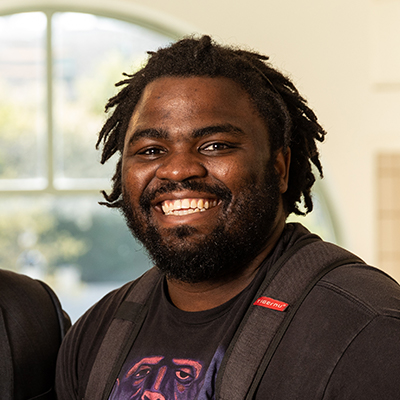 Leatherwood's dissertation focused on learning math, specifically looking at how student errors are investigated in the classroom. His work uses an ecological system lens, or the idea that multiple levels of system interact in our daily lives, from direct interactions between individuals to societal expectations, such as gendered roles or stereotypes. Focusing on math errors is critical because mistakes can potentially position students as incapable, he says, and seeing how errors are handled inside classrooms can either support productive responses or confirm negative deficit self-assumptions. Leatherwood will continue to teach both graduate and undergraduate courses at Northwestern.
Leatherwood's dissertation focused on learning math, specifically looking at how student errors are investigated in the classroom. His work uses an ecological system lens, or the idea that multiple levels of system interact in our daily lives, from direct interactions between individuals to societal expectations, such as gendered roles or stereotypes. Focusing on math errors is critical because mistakes can potentially position students as incapable, he says, and seeing how errors are handled inside classrooms can either support productive responses or confirm negative deficit self-assumptions. Leatherwood will continue to teach both graduate and undergraduate courses at Northwestern.
Dissertation: "Ecological Perspective on Error Orientations and Interactions in African-Centered Middle School Math Classrooms"
Advisors: Carol Lee and Miriam Sherin
Dr. Cora Wigger, Human Development and Social Policy
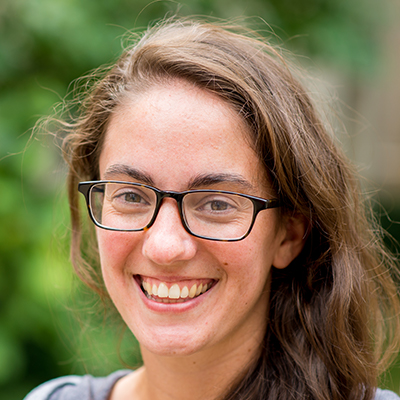 Wigger will be assistant professor in the Economics Department at Elon University in the fall. She studies the connections between education and housing, including school finance and student assignment/school choice issues. She primarily looks at how policy and economic shifts affect individuals, groups and markets. In 2020, she was a National Academy of Education /Spencer Dissertation Fellow. Her work has been supported by Northwestern University’s Multidisciplinary Program in Education Sciences (funded by the Institute for Education Sciences) and the Institute for Policy Research. Prior to beginning a PhD, Wigger worked in a variety of non-profit and government settings, including a domestic violence service agency in Louisville, Kentucky, and the Tennessee Department of Education. She has previously worked on research projects in conjunction with public school districts in Evanston, Louisville, and Nashville.
Wigger will be assistant professor in the Economics Department at Elon University in the fall. She studies the connections between education and housing, including school finance and student assignment/school choice issues. She primarily looks at how policy and economic shifts affect individuals, groups and markets. In 2020, she was a National Academy of Education /Spencer Dissertation Fellow. Her work has been supported by Northwestern University’s Multidisciplinary Program in Education Sciences (funded by the Institute for Education Sciences) and the Institute for Policy Research. Prior to beginning a PhD, Wigger worked in a variety of non-profit and government settings, including a domestic violence service agency in Louisville, Kentucky, and the Tennessee Department of Education. She has previously worked on research projects in conjunction with public school districts in Evanston, Louisville, and Nashville.
Dissertation: "Education Policy and Social Geography"
Advisor: Bo Jackson
Committee members: David Figlio and Quinn Mulroy